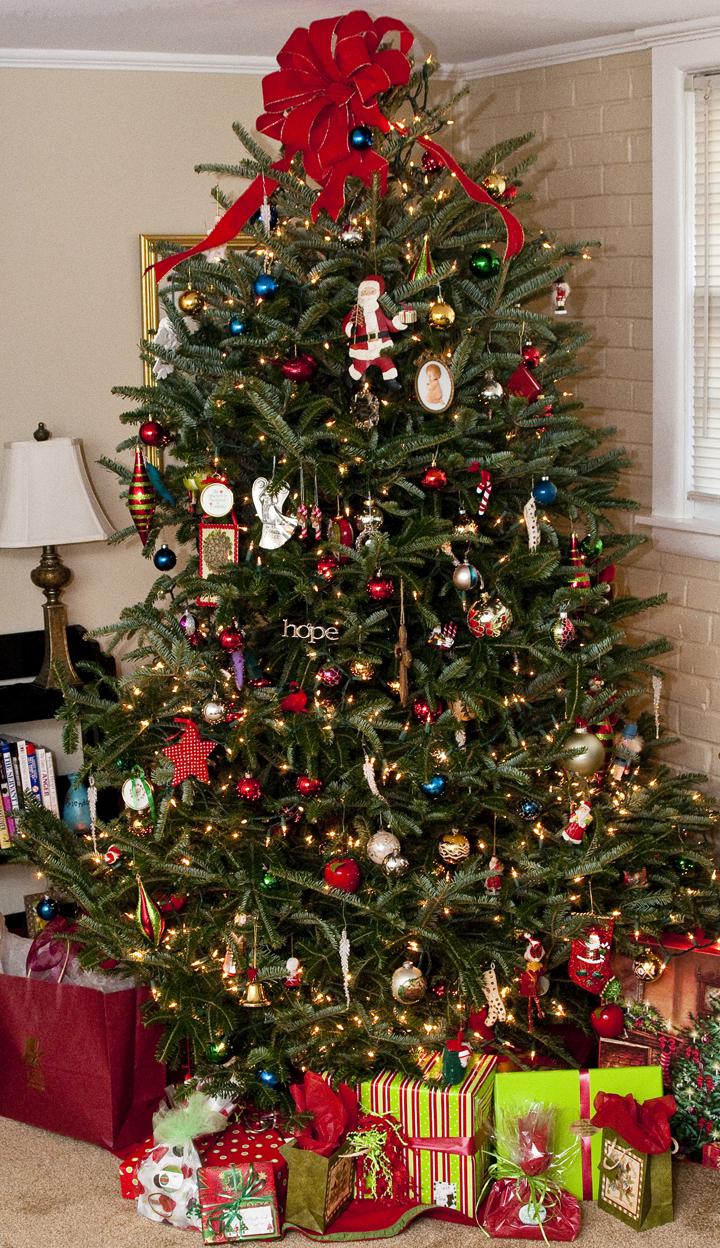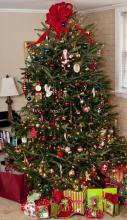Information Possibly Outdated
The information presented on this page was originally released on December 10, 2009. It may not be outdated, but please search our site for more current information. If you plan to quote or reference this information in a publication, please check with the Extension specialist or author before proceeding.
Christmas tree recycling develops into new habit
By Patti Drapala
MSU Ag Communications
MISSISSIPPI STATE – Consumers of a decade ago had few disposal options for real Christmas trees, but today they can be recycled into other natural products.
“Once a tree has been harvested and the Christmas season is over, the trunk and branches can be used as mulch for gardens, parks or in animal stalls,” said Michael May, who owns Lazy Acres Christmas Tree Farm in Chunky. “The mulch provides a protective barrier for plant roots, prevents weed growth and adds nutrients to the soil as it decomposes.”
The green movement that is sweeping the country today has influenced more communities in Mississippi to start, revive or expand recycling programs. It also has caused more people to consider a natural approach to holiday decorations, which has put traditional, fresh-cut trees back in vogue.
May said recycling programs that chip discarded, fresh-cut trees for mulch are a fast-growing trend in communities throughout the nation. Communities vary in their approach to organizing and collecting Christmas trees for recycling.
“There are communities that have drop-off points for consumers to bring their trees and others have curbside pick-up,” said Stephen Dicke, forestry specialist with the Mississippi State University Extension Service. “Some trees are kept whole and used to stabilize beaches, shorelines and sediment, or sunk in bodies of water to provide fish habitat.”
Some Mississippi Christmas tree farms provide chipping or pick-up services for recycling trees. Other groups that often get involved with recycling efforts include garden centers, landscapers, city parks and recreation departments, solid-waste management organizations and civic clubs.
“Consumers would be wise to check their local sources for news to find out if their communities will be recycling Christmas trees,” Dicke said. “If they have a computer, people can do an Internet search to discover post-holiday recycling events. They can also contact their local Extension office for more information.”
The National Christmas Tree Association provides a guide to tree recycling at http://www.christmastree.org/Recycle_start.pdf.
The Southern Christmas Tree Association, which is made up of growers from Louisiana, Mississippi and Alabama, also has a link to this publication and other information about Christmas tree recycling. Visit the site at http://www.southernchristmastrees.org.


